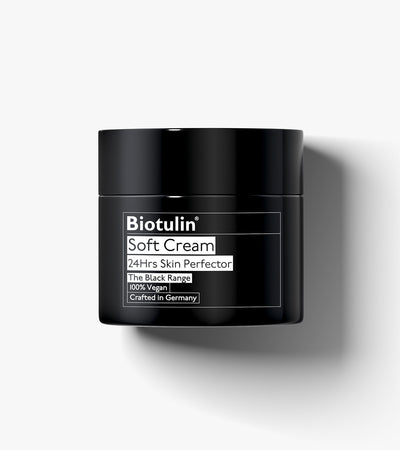Overview/Definition
Ascorbic Acid, commonly known as Vitamin C, is a vital nutrient and a potent antioxidant that plays a crucial role in skin health and overall well-being. It is an essential component in the synthesis of collagen, a protein that helps keep the skin firm and youthful. Ascorbic Acid is widely recognized for its ability to protect the skin from damage caused by free radicals, which are unstable molecules that can lead to premature aging and other skin issues. It is also known for its role in brightening the skin, reducing the appearance of dark spots, and improving overall skin tone.
Ascorbic Acid is found naturally in various fruits and vegetables, particularly citrus fruits like oranges, lemons, and grapefruits. It is also synthesized for use in cosmetic and skincare products, where it serves multiple functions, including as an antioxidant, pH adjuster, and skin-conditioning agent. The use of Ascorbic Acid in skincare is supported by its ability to enhance the skin's natural defense mechanisms, promote collagen production, and improve skin hydration.
In the realm of skincare, Ascorbic Acid is celebrated for its versatility and effectiveness. It is a staple ingredient in many anti-aging and brightening products, often paired with other potent antioxidants like Vitamin E and Ferulic Acid for enhanced benefits. Ascorbic Acid is generally considered safe for topical use across various skin types, although individuals with sensitive skin may experience mild irritation, especially at higher concentrations.
Function in Skincare
Ascorbic Acid serves several key functions in skincare:
- Antioxidant: It neutralizes free radicals, protecting the skin from oxidative stress and environmental damage.
- Collagen Production: It stimulates collagen synthesis, promoting firmer, more youthful-looking skin.
- Brightening: It helps to reduce the appearance of dark spots and hyperpigmentation, resulting in a brighter and more even skin tone.
- Hydration: It attracts and retains water in the skin, keeping it looking plump and hydrated.
- pH Adjuster: It helps to maintain the optimal pH balance of skincare products, ensuring their effectiveness and compatibility with the skin.
Skin Type Suitability
Ascorbic Acid is suitable for a wide range of skin types, including:
- Normal Skin: It can help to maintain the skin's natural balance and improve its overall appearance.
- Dry Skin: Its hydrating properties make it particularly beneficial for dry skin, helping to attract and retain moisture.
- Oily Skin: It can help to regulate sebum production and reduce the appearance of dark spots, making it suitable for oily and acne-prone skin.
- Sensitive Skin: While generally well-tolerated, individuals with sensitive skin should use Ascorbic Acid with caution, as it can cause mild irritation in some cases.
Benefits
Ascorbic Acid offers several benefits for the skin:
- Antioxidant Protection: It neutralizes free radicals, protecting the skin from oxidative stress and environmental damage.
- Collagen Stimulation: It stimulates collagen production, promoting firmer, more youthful-looking skin.
- Brightening: It helps to reduce the appearance of dark spots and hyperpigmentation, resulting in a brighter and more even skin tone.
- Hydration: It attracts and retains water in the skin, keeping it looking plump and hydrated.
- pH Adjustment: It helps to maintain the optimal pH balance of skincare products, ensuring their effectiveness and compatibility with the skin.
Potential Side Effects or Risks
While Ascorbic Acid is generally considered safe for use in skincare products, there are some potential side effects and risks to be aware of:
- Irritation: It can cause skin irritation, especially in individuals with sensitive skin or when used in high concentrations.
- Photosensitivity: It can increase the skin's sensitivity to the sun, making it more prone to sunburn and other forms of photodamage.
- Allergic Reactions: Some individuals may experience allergic reactions to Ascorbic Acid, resulting in redness, itching, or swelling.
Usage in Skincare Products
Ascorbic Acid is used in a wide range of skincare products, including:
- Serums
- Moisturizers
- Cleansers
- Sunscreens
- Eye Creams
- Facial Masks
How it’s used
Ascorbic Acid can be incorporated into a skincare routine in various ways, depending on the specific product and its intended use. It is often found in serums, moisturizers, and cleansers, where it helps to brighten, hydrate, and improve the texture of the skin. It can also be used in sunscreens and eye creams to enhance their performance and stability.
Scientific Studies/Research
Several scientific studies have evaluated the safety and efficacy of Ascorbic Acid in skincare products. The Cosmetic Ingredient Review (CIR) Expert Panel has concluded that Ascorbic Acid is safe as a cosmetic ingredient in the present practices of use. Additionally, the Food and Drug Administration (FDA) includes Ascorbic Acid on its list of substances Generally Recognized As Safe (GRAS) for use as a direct food additive.
Other Names/Synonyms
Ascorbic Acid is also known by the following names:
- Vitamin C
- L-Ascorbic Acid
- Calcium Ascorbate
- Magnesium Ascorbate
- Magnesium Ascorbyl Phosphate
- Sodium Ascorbate
- Sodium Ascorbyl Phosphate
Sustainability/Environmental Impact
Ascorbic Acid is a naturally occurring compound found in various fruits and vegetables, making it a renewable and sustainable ingredient. It is primarily produced through biotechnology or by using a fungus (Aspergillus niger) through the fermentation of a sugary solution. While generally considered safe and environmentally friendly, it is important to note that the production and use of Ascorbic Acid can have environmental impacts, and consumers may wish to choose products that use sustainably sourced ingredients.
Fun Facts
- Ascorbic Acid was first isolated in 1928 by the Hungarian biochemist Albert Szent-Györgyi.
- It is a water-soluble vitamin, meaning it is not stored in the body and must be consumed regularly through diet or supplementation.
- Ascorbic Acid is known for its role in preventing scurvy, a disease caused by a deficiency in Vitamin C.


